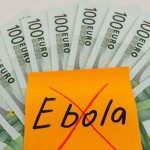 From the Ebola crisis to the weekend effect on hospital death rates, The BMJ publishes articles that receive extensive media coverage from top global news outlets. Here we present some of The BMJ’s biggest stories in 2015.
From the Ebola crisis to the weekend effect on hospital death rates, The BMJ publishes articles that receive extensive media coverage from top global news outlets. Here we present some of The BMJ’s biggest stories in 2015.
Rewards help mothers quit smoking
 Pregnant women are more likely to quit smoking if financial rewards are offered as part of a treatment plan, found a study by a team of UK researchers. This paper was covered by BBC News, the Independent, LA Times and Yahoo News.
Pregnant women are more likely to quit smoking if financial rewards are offered as part of a treatment plan, found a study by a team of UK researchers. This paper was covered by BBC News, the Independent, LA Times and Yahoo News.
Missing Ebola donations
 Only 40% of the $2.89bn pledges made by countries to the Ebola crisis have actually reached affected countries, found an analysis. This was the biggest story of the year for The BMJ with global coverage from over 500 media outlets according to Google News including The Guardian, Bloomberg, TIME and the Huffington Post.
Only 40% of the $2.89bn pledges made by countries to the Ebola crisis have actually reached affected countries, found an analysis. This was the biggest story of the year for The BMJ with global coverage from over 500 media outlets according to Google News including The Guardian, Bloomberg, TIME and the Huffington Post.
Air pollution linked to stroke and anxiety
Air pollution is linked to a higher risk of stroke, particularly in developing countries, found one study, while a second research article reported that it is also associated with anxiety. Global news coverage included reports from Reuters, ITV News, and The Daily Mail.
Paracetamol not good for back pain
A team of Australian researchers conducted a review that found paracetamol to be ineffective in the treatment of low back pain and to only provide minimal short term benefit for people with osteoarthritis. Media coverage included hits from the New York Times, BBC News, The Australian, and CBS News.
New contraceptives linked to blood clots
New evidence confirmed the link between newer contraceptive pills and higher risk of serious blood clots with media coverage from ITV News, the Scotsman, and ABC News.
Over 65s should be screened for cervical cancer
Cervical cancer is not just a young woman’s disease, and women over the age of 65 should be screened, argued experts from the UK. The Guardian, ITV News, the Daily Telegraph, Huffington Post and Sky News reported on the story.
Some SSRI antidepressants associated with birth defects
A study reported that some SSRI antidepressants may be associated with increased birth defect risk and this received coverage from the Wall Street Journal, the Guardian, NPR and Reuters.
Add some spice to your life
Regular consumption of spicy foods is linked to a lower risk of death, found research by a team of US and Chinese researchers. This generated global news stories from The Washington Post, Sydney Morning Herald, Forbes, and The Times of India.
Does the weekend effect lead to higher death rates?
One of the biggest health stories of the year in the UK was the “weekend effect” on hospital death rates. In September, The BMJ published research that suggested that hospital admissions over the weekend are linked with increased mortality rates. BBC News, The Telegraph and The Observer covered the story, among many other daily newspapers.
The following month, editor in chief Fiona Godlee wrote to Jeremy Hunt about his misuse of numbers on avoidable deaths that he claimed were published in The BMJ article. BBC News, the Independent and the Daily Mail covered this development.
Another big hit worth a special mention is the reanalysis of Study 329 that found paroxetine to be unsafe in the treatment of depression for adolescents—this story made headline news around the world.
Does calcium improve bone health?
Increasing calcium intake is unlikely to boost bone health or prevent fractures, concluded two studies, both of which received coverage from TIME, The Australian, and CBS News.
Weekend effect linked to higher risk of death among newborns
Babies born in English NHS hospitals at the weekend have a slightly greater risk of death within the first seven days, reported a study that received coverage from CBS News, New York Magazine, and New Scientist.
The BMJ Christmas issue—tis the season!
As usual, The BMJ Christmas issue generated widespread global media coverage with big hits for articles on heads of governments ageing quickly, preventing a zombie apocalypse, to the Christmas spirit being located in the brain and Bob Dylan lyrics cited in medical literature. These articles enjoyed widespread news coverage from many media outlets including The New York Times, Forbes, NBC News, and the Hindustan Times.
Gozde Zorlu and Emma Dickinson work on media relations for The BMJ.







